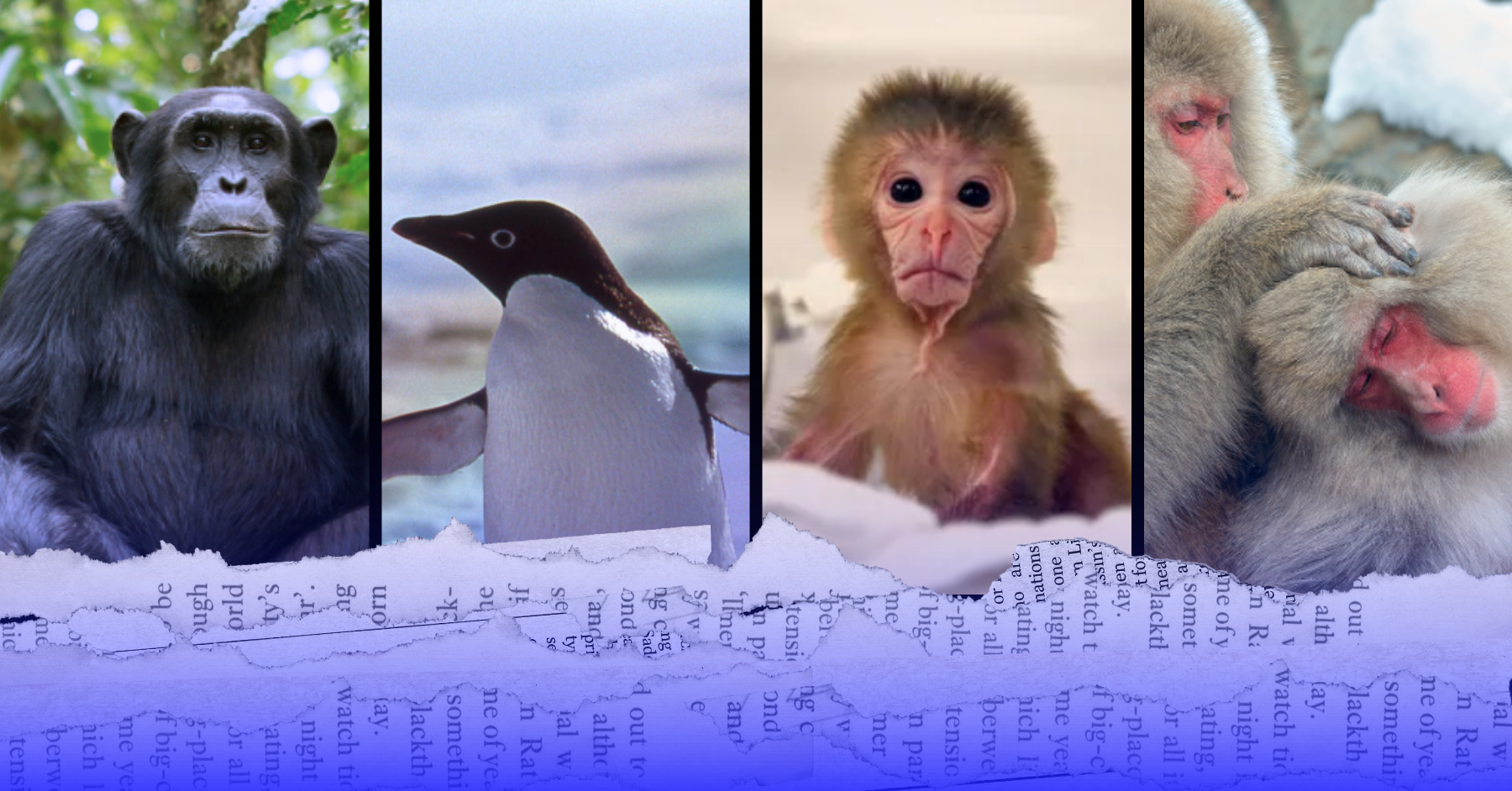
Here’s a roundup of this week’s biggest news stories related to animal research—all the recent media coverage you need to know right now to be the most effective activist for animals in labs.

Species Spotlight: Marmosets
Rise for Animals, 6/20/2024
Marmosets are small, long-tailed monkeys native to certain Atlantic coastal forests of South America and closely related to humans. They are adorable, complex, fascinating creatures! 📰 Full Story →

PETA Accuses Mesa Monkey Facility of Not Protecting Employees
William Pitts, 6/14/2024
“[PETA] has sent a complaint to the U.S. Department of Agriculture alleging multiple violations at a Mesa primate research facility run by the University of Washington. The complaint accuses the university of failing to protect its employees from injuries at both the Mesa facility and its sister location in Seattle.”
“The University of Washington uses the [Mesa] facilities to raise monkeys for testing purposes.”
“‘If you can’t keep your monkeys healthy, if you can’t keep your staff safe,’ . . . ‘you’re not taking good care of taxpayer funding, you’re not doing good science.’” 📰 Full Story →

We Are What We Connect
LIxing Sun, 6/14/2024
“Tibetan macaques offer us just a glimpse into the complex world of animal social networks.”
“They spend most of their waking hours grooming each other, massaging their relationships. This is especially true for females, who form the core of their society. As a result, the more females in a group, the faster they arrive at decisions for group movement….”
“ . . . they follow a simple-majority democracy in their decision-making. As long as more than half of the members join in, a group activity will always take place.” 📰 Full Story →
Rehoming Lab Rats and Mice. “They Are Small but the Richness of Their Lives Is Equal”
Petra Stock, 6/17/2024
“Lab rats make great pets . . . ‘hilarious’, ‘easy to train’, ‘social’, ‘snuggle bunnies’ and ‘not prone to biting’.”
“The rats in question are not standard pets, but rather animals bred for research, and either alive and healthy after experiments or surplus to requirements.”
“As part of a new rat rehoming initiative, the University of Auckland is teaming up with the New Zealand Anti-Vivisection Society (NZAVS) to find homes for 50 animals every month . . . Janssens argues the ethical imperative to rehome smaller mammals like mice and rats is the same as for larger animals like horses, sheep, dogs or cats. ‘They are small but the richness of their lives is equal,’ she says.” 📰 Full Story →

LGBTQ+ Animals: Many Dolphins, Penguins, Bonobos Are Naturally Queer
Carly Mallenbaum, 6/17/2024
“It’s Pride month, a good time to share this reminder: It’s natural to be queer in the animal world.”
“Looking at animals strictly through a heteronormative lens has long limited scientific understanding and contributed to the othering of members of the LGBTQ+ community, per science experts.”
“Same-sex sexual behavior has been recorded in more than 1,500 animal species in well-regarded scientific journals….” 📰 Full Story →

Fishy Parenting? Punishing Offspring Encourages Cooperation
OMU, 6/18/2024
“ . . . a fish species employs physical punishment to elicit helping efforts from their offspring, indicating advanced social and cognitive skills previously thought to be unique to higher vertebrates.”
“For millennia, human societies have used punishment to promote cooperation and maintain social order. But humans are not the only species seeking better cooperative behavior . . . The study’s findings highlight that punishment is not exclusive to human societies but is also present in how other animals enforce cooperation and maintain social relationships.”
“‘Our findings reveal that fish, like humans, employ advanced cognitive abilities to sustain their societies. This compels us to reconsider the notion of ‘intelligence’ not only in fish but across the animal kingdom,’….” 📰 Full Story →

UW Primate Research Lab Director Dismissed Amid a Halt in Monkey Deliveries
Manuel Villa, 6/19/2024
“The University of Washington has dismissed the director of its primate research center, adding to a series of concerning developments at the controversial lab.”
“The dismissal of Dr. Michele Basso . . . comes after a routine inspection report faulted the UW for the death of a rhesus macaque last year, and amid an ongoing review by the state veterinary board. In the same month as Basso’s dismissal, the university quietly suspended all incoming shipments of primates to its Seattle and Arizona facilities.”
“The UW primate lab is one of seven primate research centers that receive millions in grants for medical and scientific research involving nonhuman primates from the [NIH] . . . NIH doesn’t monitor research centers to ensure compliance with federal regulations on the ethical treatment of research animals.” 📰 Full Story →

Chimps Use More Plant Medicines Than Any Other Animal
Dennis Normile, 6/20/2024
“For several decades, evidence has accumulated that animals turned to medicinal plants to relieve their ailments.”
“Observers with the team behind today’s paper spent 4 months with each of two chimp communities . . . From the 170 chimps in the two communities, the observers zeroed in on 51 individuals suffering bacterial infections and inflammation as indicated by abnormal urine composition, diarrhea, traces of parasites, or apparent wounds.”
“For all 51 sick chimps, [] self-medication appeared to work.” 📰 Full Story →
